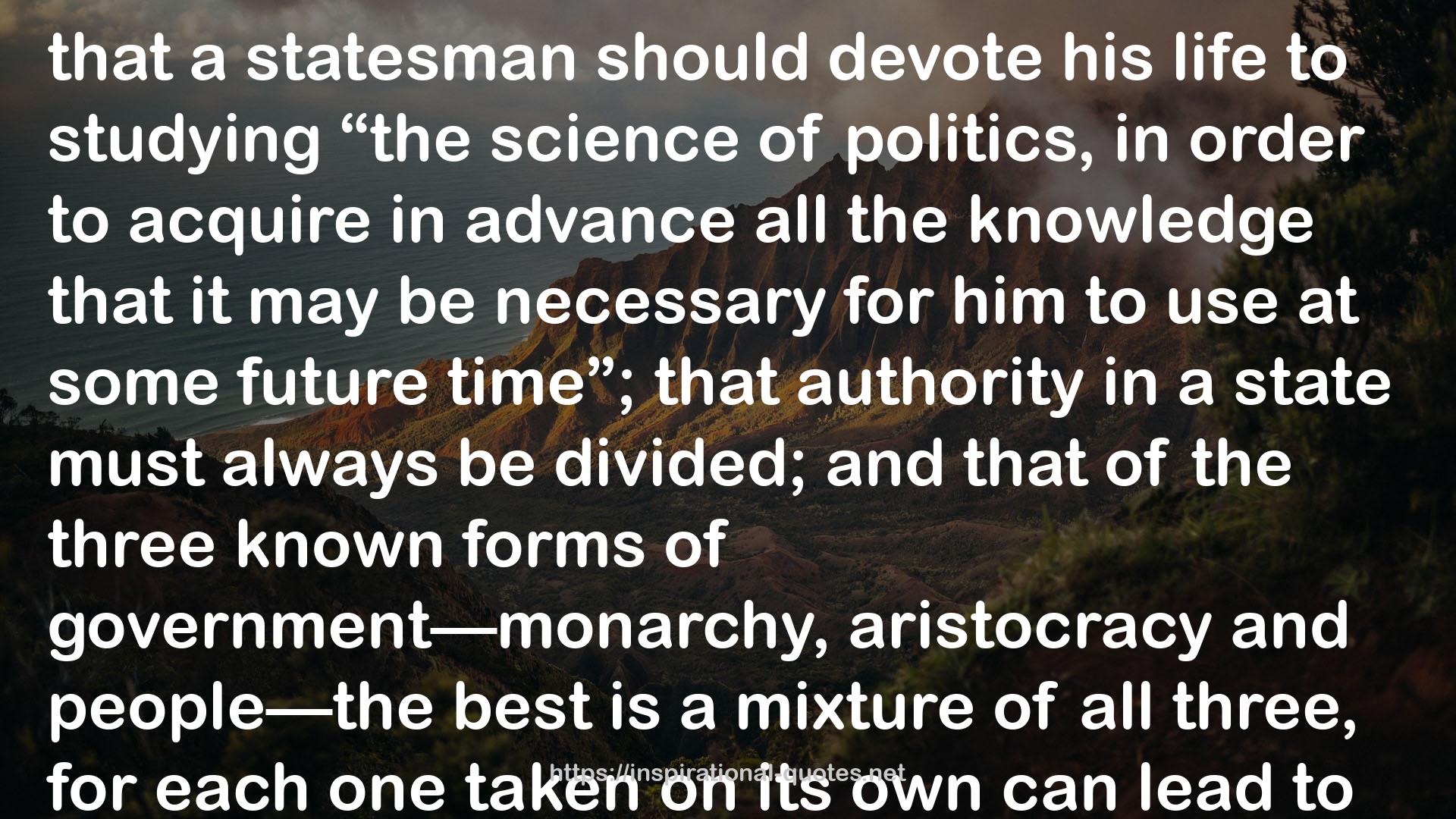" that a statesman should devote his life to studying “the science of politics, in order to acquire in advance all the knowledge that it may be necessary for him to use at some future time”; that authority in a state must always be divided; and that of the three known forms of government—monarchy, aristocracy and people—the best is a mixture of all three, for each one taken on its own can lead to disaster: kings can be capricious, aristocrats self-interested, and “an unbridled multitude enjoying unwonted power more terrifying than a conflagration or a raging sea.” Often today I reread On the Republic, and always I am moved, especially by the passage at the end of book six, when Scipio describes how his grandfather appears to him in a dream and takes him up into the heavens to show him the smallness of the earth in comparison to the grandeur of the Milky Way, where the spirits of dead statesmen dwell as stars. The description was inspired by the vast, clear night skies above the Bay of Naples: I gazed in every direction and all appeared wonderfully beautiful. There were stars which we never see from earth, and they were all larger than we have ever imagined. The starry spheres were much greater than the earth; indeed the earth itself seemed to me so small that I was scornful of our empire, which covers only a single point, as it were, upon its surface. “If only you will look on high,” the old man tells Scipio, “and contemplate this eternal home and resting place, you will no longer bother with the gossip of the common herd or put your trust in human reward for your exploits. Nor will any man’s reputation endure very long, for what men say dies with them and is blotted out with the forgetfulness of posterity. "
― Robert Harris , Dictator (Cicero, #3)
